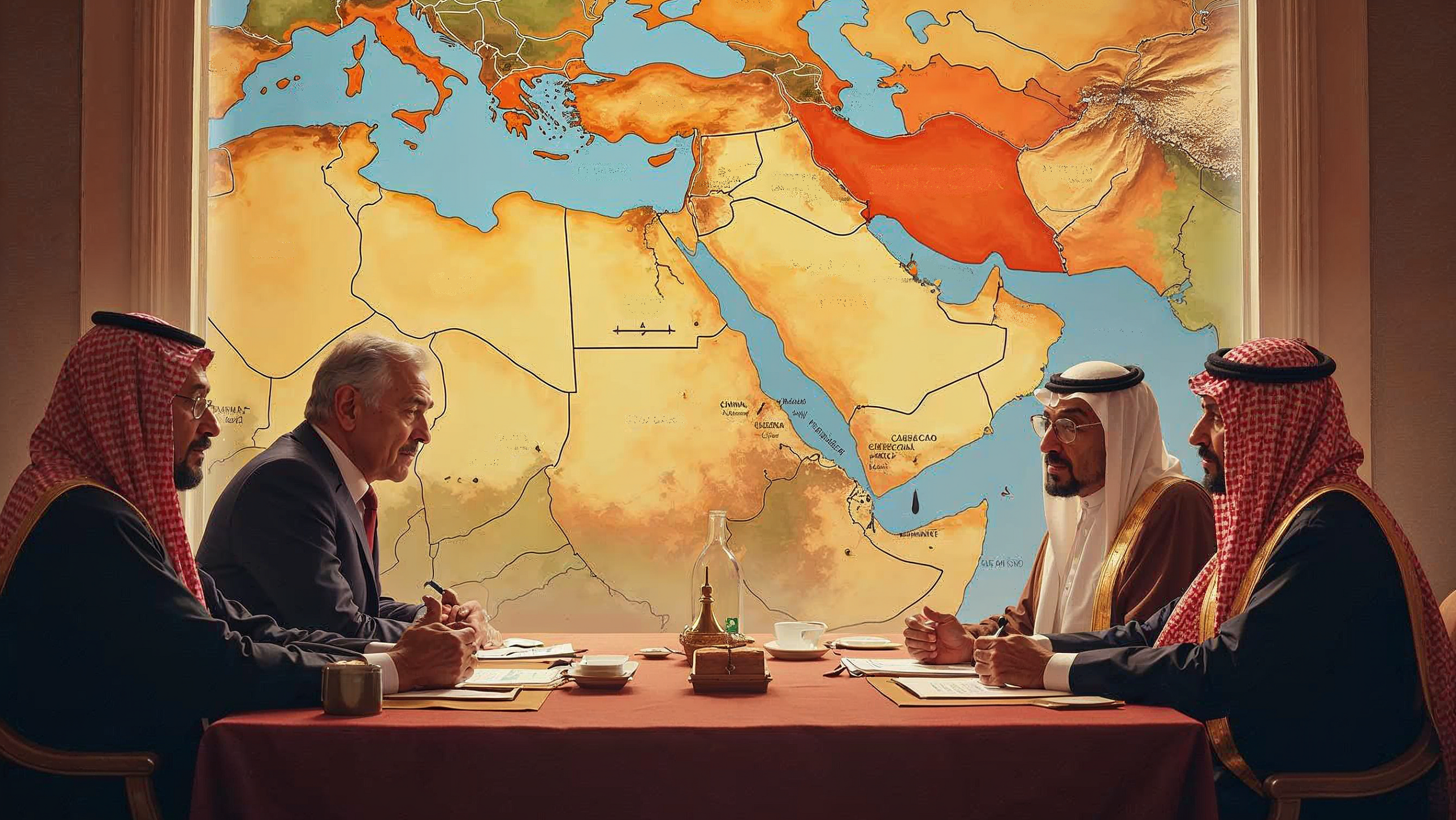Trump: Don’t Lose Your Friends and Allies
Okaz, Saudi Arabia, February 12
Throughout the political history of the Kingdom of Saudi Arabia, Saudi leadership has never made provocative statements about US elections or who will reside in the White House for the next four years. This is strictly an internal American matter in which they do not interfere. Nevertheless, there is undoubtedly a political preference for one president over another, based on the anticipated ability of a US president to manage Middle Eastern affairs transparently and without harming the interests of Arab nations.
Historically, many US presidents have formed bonds of friendship with Saudi leaders, influencing the political landscape in the region, particularly regarding the Palestinian issue. In the early 1980s, the Israeli military invaded Lebanese territory to eliminate the Palestine Liberation Organization, headquartered in Lebanon. The removal of these symbols severely weakened the Palestinian cause, potentially leading to its complete dissolution. However, Saudi diplomacy, spearheaded by King Fahd, may he rest in peace, exerted significant pressure on the US government at the time to impose similar pressures on Israel. This allowed the Palestinian leadership to leave Lebanon peacefully and relocate to Tunisia. These diplomatic efforts resulted in the departure of the Palestinian leadership and forces from Lebanon.
It’s noteworthy that various American administrations, under different presidents, recognize the importance of the Palestinian issue to Arabs as a whole. Many presidents have pressed successive Israeli governments to negotiate with Palestinians to establish regional peace. Among the most notable American presidents who supported peace were Carter, George HW Bush (the father), and Clinton. Bush the father even threatened to withhold support from Israel if it did not participate in peace talks led by the Soviet Union and the United States in Spain.
However, the uninspired policy of former President Biden’s administration towards the Palestinian issue prompted hopes that the newly elected President Trump would take a different approach. The Kingdom of Saudi Arabia regarded President Trump as a friend who cares for his allies’ interests and as a strong figure capable of pressuring Israel. They also believed he could combat terrorism and dismantle the so-called Axis of Evil, which somewhat materialized during his first term as he curtailed sources of terrorism by tackling certain terrorist leaders.
This holiday season, give to:
Truth and understanding
The Media Line's intrepid correspondents are in Israel, Gaza, Lebanon, Syria and Pakistan providing first-person reporting.
They all said they cover it.
We see it.
We report with just one agenda: the truth.


Optimists welcomed President Trump to continue the peace process in the region, albeit not at the region’s expense. Trump might have considered his proposed political solution, which suggested removing Palestinians from their historical lands and resettling them in other Arab countries, sufficient to resolve the Palestinian issue. Yet, President Trump seemingly overlooked that the Palestinian issue is a matter of historical rights for all Arab peoples, primarily the Palestinians themselves.
The history of ancient people cannot be erased under any circumstances. This timeless land holds imprints of history extending for centuries, with people who lived on their ancestors’ soil. No president or leader can dictate who resides in this place; history cannot be obliterated by a few arbitrary decisions, subject to the whims of great countries’ leaders. No country, regardless of its military and political might, can alter history and distribute a people’s heritage arbitrarily.
The West Bank and Gaza Strip remain the embodiment of the Palestinian dream. It is striking that President Trump suggested that Egypt and Jordan agree to relocate the people of Gaza, disregarding the rightful owners of the cause and the land. No Arab country can forfeit ownership of what it does not possess.
President Trump desires to transform Canada into an American state and seeks to acquire Greenland from Denmark. These statements might eventually cost him allies and friends from Arab and Western countries alike. Certainly, a vital indicator of success for any president is building alliances that serve his country’s interests. Losing allies and friends means that former partners will adopt defensive stances to protect their people’s interests.
Losing allies may ultimately harm American interests in the long term. These reckless policies might yield short-term successes, but in the end, historical rights cannot be nullified by a few hasty decisions made by countries wielding political and military power to support a usurping state in a world where the law of the jungle seems to loom on the horizon.
Mohamed Mufti (translated by Asaf Zilberfarb)

